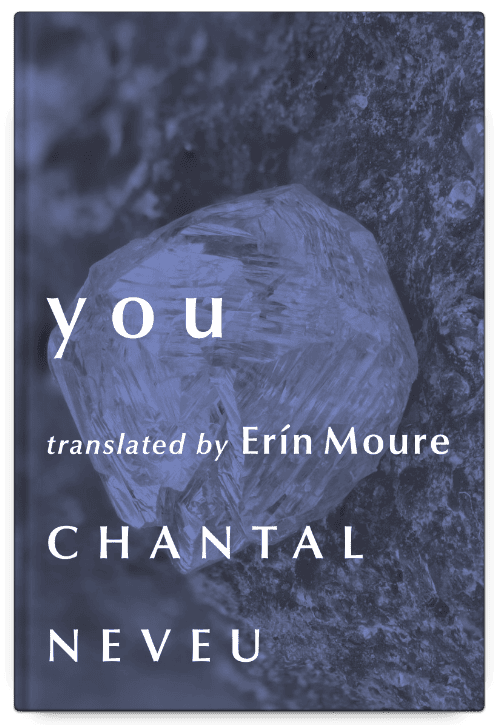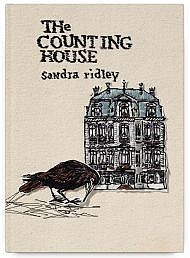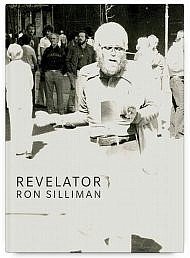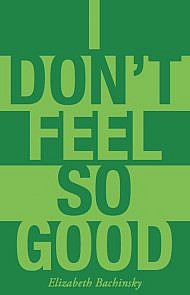From poet Chantal Neveu, author of the award-winning collection This Radiant Life, comes a book-length poem that plunges us more deeply into the notion of the idyll and into the polyhedric structure of love.
you demonstrates with exceptional beauty how in the interval between words or verses, language can glimmer, absorb, and refract the changing realities and attractions of an all too human relationship.
Personal autonomy and the formation of “self” are nourished here by multiples—I, you, s/he. The voice in you reclaims life from change and time and affirms it anew.
Praise for you
“Chantal Neveu moves to reappropriate writing on love, with precision and balance, and without evading the turmoil…. you is among the texts that quietly renew the relationship between poetry and intimacy.” —Adrien Meignan, Un dernier livre avant la fin du monde (tr. Erín Moure)
“Neveu’s writing sets aside all that might relate to articulation, coordination or subordination, so as to free up only what is indispensable via a fractioned speech.” —Monique Deland, Estuaire (tr. Erín Moure)
Press Coverage
Excerpt from you —Four Way Review
“Most of the lines in this book contain just a few words. Such minimalism is deceptive, though, as this very self-aware love poem performs fervor and excess on every page…What the speaker is preoccupied with is not an object of desire or even desire itself, but the prospects of their mind’s possible entanglements. Neveu’s poem is an experiment in observing oneself responding to love—she is drawn to the cerebral possibilities of being absorbed by another.” —Janani Ambikapathy, Harriet Books, Poetry Foundation
Most Anticipated: Our 2024 Spring Poetry Preview —49th Shelf
New Poetry Titles (3/19/24) —Philly Poetry Chapbook Review
37 Poetry Collections to Watch For in Spring 2024 —CBC Books
“Each of the sixty‐four pages here lends crystalline power to single words as the form of the poem tends to work toward a word‐per‐line. The poem honours both each discrete mark and the surrounding absences (all of that space around the unit!) and thereby brings thing and void into exquisite relation. you encourages you to read it with something like a fevered but impressively measured tempo.” —Jake Kennedy, The Malahat Review
About the Author
Chantal Neveu is the author of seven books of poetry, including you; La vie radieuse (This Radiant Life, winner of the 2021 Governor General’s Literary Award for Translation and the 2021 Nelson Ball Prize.; coït (Coït); Une spectaculaire influence (A Spectacular Influence); mentale; èdres; and Dans l’architecture (co-written with Nicolas Tardy). She has created numerous interdisciplinary literary works, in Canada and abroad. Her work has appeared in many magazines and anthologies: Cyclages/Grupmuv, Espaces de savoir, Laboratoire parcellaire. She has held residencies at Maison de la poésie de Nantes (France), Passa Porta and Villa Hellebosch (Belgium), and Villa Waldberta (Germany). Neveu lives in Montreal.
Erín Moure is a poet and poetry translator. Most recent book: Chus Pato’s The Face of the Quartzes (2021) from Galician. Her translation of Chantal Neveu’s This Radiant Life (2020) won the 2021 Governor General’s Literary Award for Translation from French and the Nelson Ball Prize. Her latest book of poetry and biotext is Theophylline: an aporetic migration via the modernisms of Rukeyser, Bishop, Grimké,






